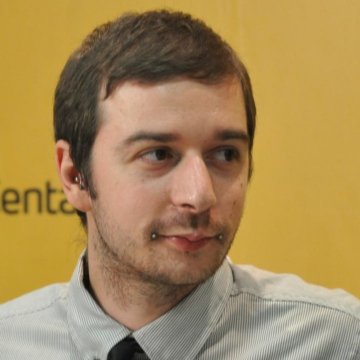- About
- Topics
- Picks
- Audio
- Story
- In-Depth
- Opinion
- News
- Donate
- Signup for our newsletterOur Editors' Best Picks.Send
Read, Debate: Engage.
| topic: | Freedom of Expression |
|---|---|
| located: | Serbia, United Arab Emirates |
| editor: | Katarina Panić |
Belgrade-based journalist Stevan Dojčinović last month had been barred from entering the United Arab Emirates. He was supposed to speak at the anti-corruption conference in Abu Dhabi organised by United Nations Office on Drugs and Crime. This time his story remained untold.
“It was a very important event, especially since it took place in the Emirates. In my speech, I wanted to explain the connection of this country with Serbia, and I am very sorry that I did not say it there. I wanted to show, through the cases of Belgrade on the Water and Siniša Mali, how these corrupt relationships work”, Dojčinović told the media after deportation.
Dojčinović is founder and editor-in-chief of the Crime and Corruption Reporting Network, KRIK and regional editor of the Organized Crime and Corruption Reporting Project. Worldwide award-winning investigative journalist, one of his latest prizes, the Knight International Journalism Award, he won just a month before the Abu Dhabi episode.
“At an increasingly dangerous time, he leads a team of courageous journalists who have shed light on money laundering by business elites and other abuses by government officials. As a result of his probes, Dojčinović has been a frequent target of threats and vicious personal attacks by government allies”, the International Center for Journalists stated in this regard.
After landing at Abu Dhabi airport, the police held him for 12 hours. Then he was brought back to Belgrade with the first flight. He got the paper which says the immigration authority refused him entry as he is blacklisted, with no further explanation.
“I remember chatting with a cop, and I asked him: 'Why are you kicking me out of the country? I'm not criminal, and I've never been here before.' He asked me what I was doing, and when I said I was a journalist, he said with a smile that in some countries it was worse than being a criminal”, Dojčinović told media.
The Committee to Protect Journalists tweeted: “Authorities at the airport denied that the Emirates government put him on the blacklist, but wouldn’t identify which country did”.
The same happened to Dojčinović five years ago in Russia, where the Faculty of Journalism in the city of Voronezh invited him to teach the students. He was detained for a whole day at the Moscow airport. The police deported him back to Belgrade, and he got a 5-year ban from returning. He had repeatedly been asking all the institutions what happened but got no answer ever since. The only one who responded was the Russian secret service, FSB, saying they consider him as a threat to national security and public health.
Image: IJnet
